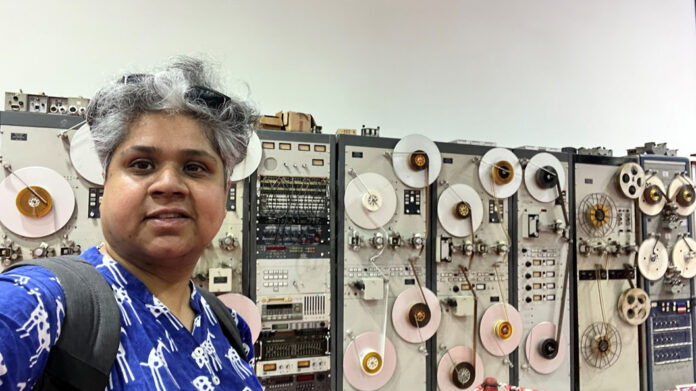As an Indian woman in a predominantly global industry, Aparna’s journey is marked by both challenges and achievements. “Archiving is not just about preserving what is popular or celebrated,” she argues. “Archiving isn’t just about preserving what’s popular or well-known,” she says. “It’s about making sure every voice, no matter how small, is part of the bigger story.” Her role as an advocate for inclusivity and ethics in archiving is equally noteworthy.
India’s rich and diverse cultural tapestry is reflected in its moving images, from early silent films to contemporary cinema. However, the nation’s audiovisual heritage faces a multitude of challenges, from poor storage conditions to lack of awareness about preservation. Aparna has made it her mission to address these gaps. “Our films, documentaries, and even home videos are more than entertainment,” she explains. “They are pieces of history, identity, and emotion.” Her efforts have been instrumental in bridging the gap between local archival practices and global standards. She has navigated the challenges of preservation with both dedication and precision.
With advanced training as a Fulbright Scholar from NYU’s Moving Image Archiving and Preservation (MIAP) and a relentless drive, Aparna has dedicated herself to ensuring that the stories of the past inform and inspire the future.
Aparna’s voice stands out in a field that frequently neglects marginalized narratives. She has been a strong advocate for including regional filmmakers, indigenous stories, and the often-overlooked labour involved in the archiving and preservation of celluloid films. Joining the Board of Directors at AMIA is a professional milestone and also a platform for her to drive meaningful change. an opportunity to drive impactful change. She is particularly excited about fostering collaboration between emerging archivists and seasoned professionals. “Knowledge-sharing is critical,” she says. “We need to create pathways for young archivists to learn, innovate, and lead.” Aparna’s work with AMIA is an extension of her dedication to this cause.
“Archives should be open, inclusive, and relevant to contemporary audiences.” She envisions a future where digitized archives are accessible to researchers, artists, and the general public alike, breaking down barriers of geography and privilege.
The challenges facing moving image archivists today are complex and multifaceted. Rapid technological advancements, digital obsolescence, and the ethical dilemmas of archiving are just a few of the issues Aparna is tackling head-on. She believes in a balanced approach, combining the meticulous care of traditional preservation methods with the scalability and innovation of digital technology. “It’s not about choosing one over the other,” she explains. “It’s about creating a synergy where both methods enhance and complement each other.”
One of the initiatives Aparna is most passionate about is addressing digital obsolescence. In a world where formats become outdated at an alarming rate, she sees an urgent need for proactive strategies. “We need to think beyond just preserving the content,” she says. “We must also preserve the equipment and devices required to access it.” Her advocacy extends to developing policies and frameworks that ensure the longevity and accessibility of digital archives.
Aparna Subramanian is the first Asian and Indian to be on the Board of Directors at the Los-Angeles based Association of Moving Image Archivists. Aparna envisions a future with fostering ethical practices in archiving, with a strong focus on community involvement, particularly when working with culturally sensitive material. Her aspirations for AMIA and the field of moving image archiving are ambitious yet grounded. She envisions a future where archives are not just seen as repositories but active participants in cultural dialogue and understanding.





















